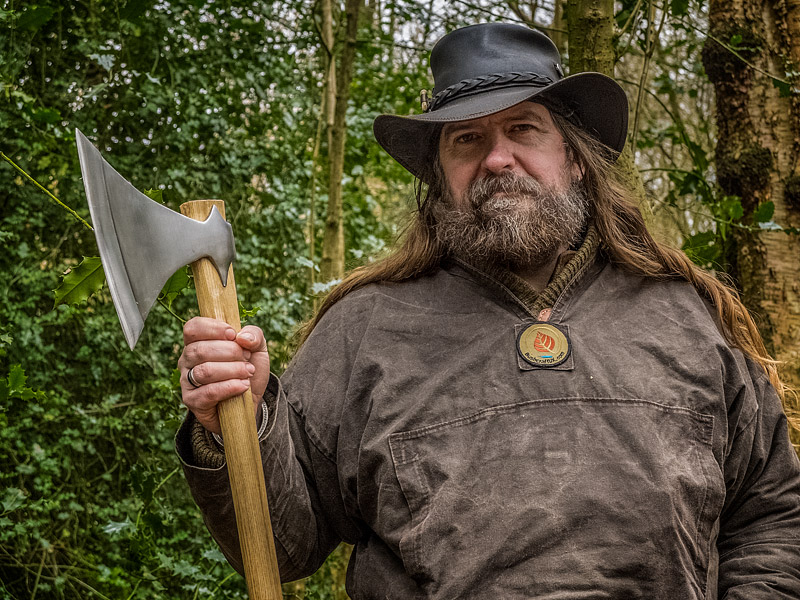Can you educate us on the purpose of the uber long helve Wayland?
Remembering that this is a tool designed for war. The long helve adds an awesome power to the cutting stroke which helps when trying to drop a horse or rider and can also be used on the back hand as a stave weapon. Much like a quarter staff.
I think it was almost certainly a weapon that was used as part of a co-ordinated group. Although very dangerous on the attack it had a key weakness in that it was slow on the recovery so I suspect you would need a couple of good warriors at your side to cover you at such moments.


